

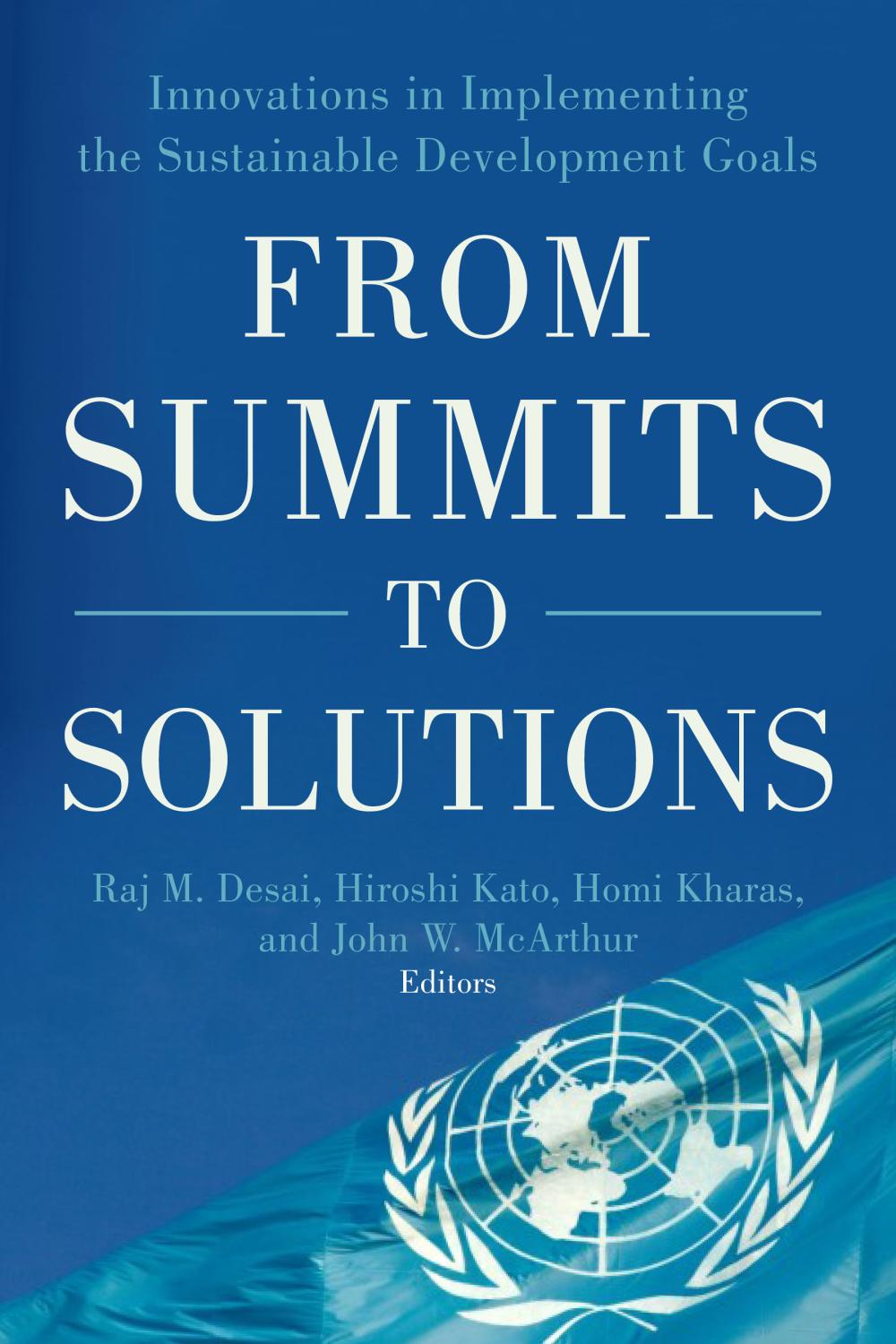
Book
A positive agenda for achieving the Sustainable Development Goals by 2030
All 193 member nations of the United Nations agreed in September 2015 to adopt a set of seventeen “Sustainable Development Goals,” to be achieved by 2030. Each of the goals—in such areas as education and health care —is laudable in and of itself, and governments and organizations are working hard on them. But so far there is no overall, positive agenda of what new things need to be done to ensure the goals are achieved across all nations.
In a search of fresh approaches to the longstanding problems targeted by the Sustainable Development Goals, the Japan International Cooperation Agency and the Global Economy and Development program at Brookings mounted a collaborative research effort to advance implementation of Agenda 2030. This edited volume is the product of that effort.
The book approaches the UN’s goals through three broad lenses.
The first considers new approaches to capturing value. Examples include Nigeria’s first green bonds, practical methods to expand women’s economic opportunities, benchmarking to reflect business contributions to achieving the goals, new incentives for investment in infrastructure, and educational systems that promote cross-sector problem solving.
The second lens entails new approaches to targeting places, including oceans, rural areas, fast-growing developing cities, and the interlocking challenge of data systems, including geospatial information generated by satellites.
The third lens focuses on updating governance, broadly defined. Issues include how civil society can align with the SDG challenge; how an advanced economy like Canada can approach the goals at home and abroad; what needs to be done to foster new approaches for managing the global commons; and how can multilateral institutions for health and development finance evolve.
Related Books

Laurence Chandy, Hiroshi Kato, Homi Kharas
July 20, 2015
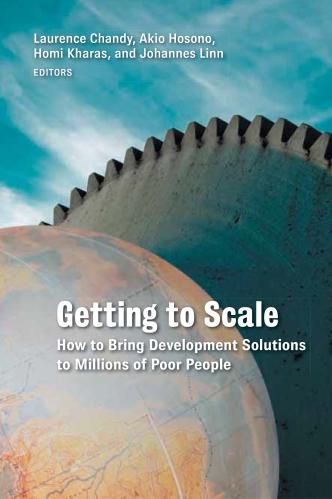
Laurence Chandy, Akio Hosono, Homi Kharas, Johannes Linn
April 15, 2013
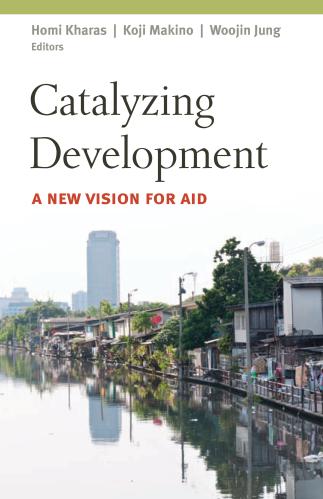
Homi Kharas, Koji Makino, Woojin Jung
June 21, 2011
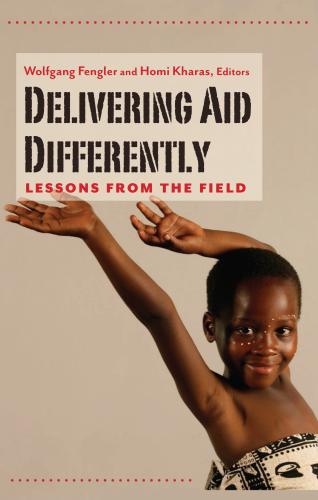
Wolfgang Fengler, Homi Kharas
September 16, 2010
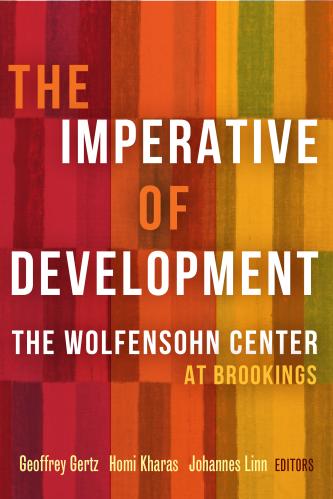
Geoffrey Gertz, Homi Kharas, Johannes F. Linn
September 12, 2017

Raj M. Desai, Itzhak Goldberg
July 14, 2008
1. The Need for Innovations to Implement the Sustainable Development Goals
Raj M. Desai, Hiroshi Kato, Homi Kharas, and John W. McArthur
Part I: Capturing Value
2. Expanding Women’s Economic Opportunities
Laura Tyson and Jeni Klugman
3. From Green Bonds to Sustainable Development: The Case of Nigeria
Amina Mohammed with Simon Zadek
4. Collective Action on Business Standards, Goals, and Metrics to Achieve Scale and Impact for the SDGs
Jane Nelson
5. Professionalizing Cross-Sector Collaboration to Implement the SDGs
Ann Florini
6. Building Sustainable Financing Architecture to Achieve the SDGs: The Case of Brazil
Rogério Studart
Part II: Targeting Places
7. Making Rural Areas Places of Opportunity: Not Just a “Rural Agenda”
Bettina Prato
8. Using Remote Sensing and Geospatial Information for Sustainable Development
Linda See, Steffen Fritz, Inian Moorthy, Olha Danylo, Michiel van Dijk, and Barbara Ryan
9. Enhancing Statistical Capacity for Development
Ryuichi Tomizawa and Noriharu Masugi
10. Rescaling Government for an Urban Future
Reuben Abraham and Pritika Hingorani
11. Protecting Half the Ocean?
Enric Sala and Kristin Rechberger
Part III: Updating Governance
12. A Canadian North Star: Crafting an Advanced Economy Approach to the Sustainable Development Goals
Margaret Biggs and John W. McArthur
13. A People’s Agenda: Citizen Participation and the SDGs
Dhananjayan Sriskandarajah
14. Safeguarding Our Global Commons
Naoko Ishii
15. Unity in Diversity: Reshaping the Global Health Architecture
Ikuo Takizawa
16. Crowding-In Private Finance: What Multilateral Banks Can Do Differently
Mahmoud Mohieldin and Jos Verbeek, with Nritya Subramaniam
Authors
Edited by
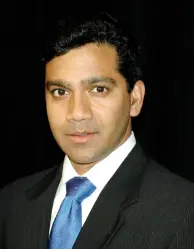
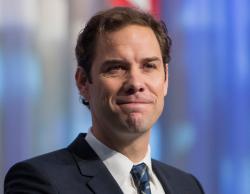
Raj M. Desai is a visiting fellow in Global Economy and Development at Brookings Institution, and associate professor of international development in the Edmund A. Walsh School of Foreign Service at Georgetown University. Previously, he was a member of the core team for the World Bank's World Development Report unit.
Hiroshi Kato is senior vice president of the Japan International Cooperation Agency, overseeing several departments (Africa, Infrastructure and Peacebuilding, Rural Development, Domestic Strategy and Partnership) and JICA-University Alliance for Development Studies. Previously, he served as director of the JICA Research Institute.
Homi Kharas is the interim vice president and director of Global Economy and Development at Brookings Institution. He has served as the lead author and executive secretary of the secretariat supporting the High Level Panel advising the U.N. secretary general on the post-2015 development agenda (2012–13).
John W. McArthur is a senior fellow in the Global Economy and Development program at Brookings Institution. He is also a senior adviser to the UN Foundation and a board governor for the International Development Research Centre. Previously, he served as chief executive officer of Millennium Promise and manager of the UN Millennium Project.